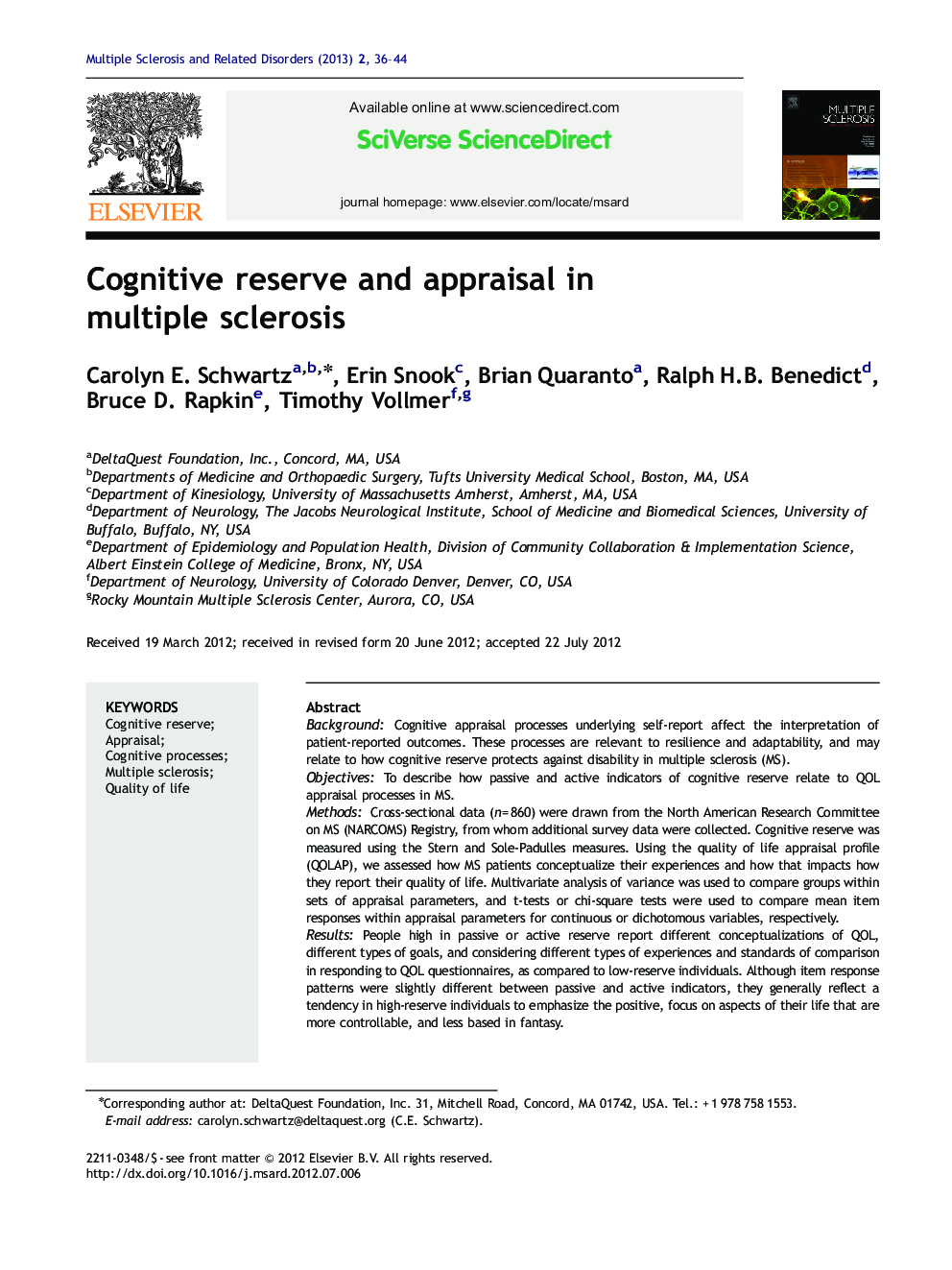| Article ID | Journal | Published Year | Pages | File Type |
|---|---|---|---|---|
| 2823929 | Multiple Sclerosis and Related Disorders | 2013 | 9 Pages |
BackgroundCognitive appraisal processes underlying self-report affect the interpretation of patient-reported outcomes. These processes are relevant to resilience and adaptability, and may relate to how cognitive reserve protects against disability in multiple sclerosis (MS).ObjectivesTo describe how passive and active indicators of cognitive reserve relate to QOL appraisal processes in MS.MethodsCross-sectional data (n=860) were drawn from the North American Research Committee on MS (NARCOMS) Registry, from whom additional survey data were collected. Cognitive reserve was measured using the Stern and Sole-Padulles measures. Using the quality of life appraisal profile (QOLAP), we assessed how MS patients conceptualize their experiences and how that impacts how they report their quality of life. Multivariate analysis of variance was used to compare groups within sets of appraisal parameters, and t-tests or chi-square tests were used to compare mean item responses within appraisal parameters for continuous or dichotomous variables, respectively.ResultsPeople high in passive or active reserve report different conceptualizations of QOL, different types of goals, and considering different types of experiences and standards of comparison in responding to QOL questionnaires, as compared to low-reserve individuals. Although item response patterns were slightly different between passive and active indicators, they generally reflect a tendency in high-reserve individuals to emphasize the positive, focus on aspects of their life that are more controllable, and less based in fantasy.ConclusionsMS patients high in cognitive reserve differ in their cognitive appraisals from their low reserve counterparts. These appraisal metrics may predict disease course and other important clinical outcomes in MS patients.
► High reserve individuals evidence differences in QOL appraisal processes. ► High reserve individuals emphasize the positive. ► They focus on aspects of their life that are more controllable, and less based in fantasy. ►There were more differences between active-reserve than between the passive-reserve groupings. ► Thus current stimulating activities are particularly important for QOL and well-being.
